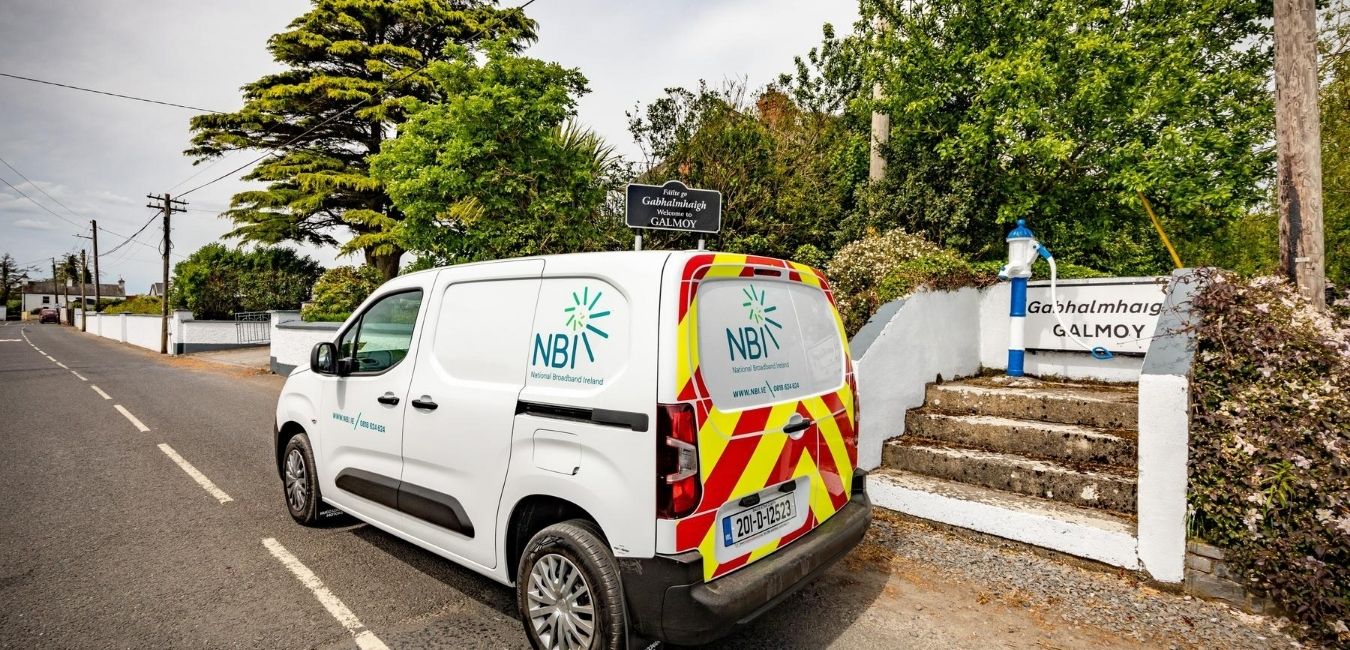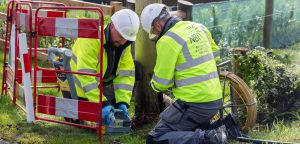Source: Irish Examiner
By: Stephen Cadogan
National Broadband Ireland has confirmed that townlands around Carrigaline in Co Cork will be the first to connect to the National Broadband Plan’s high-speed fibre network later this year.
Nearly 4,500 premises in the area were the first of 55,000 nationwide already surveyed as part of NBI’s rollout of a fibre network to nearly 537,000 premises identified by the Department of Communications, Climate Action and Environment as not being served with adequate broadband services.
Surveying involves documenting poles, cables, and underground ducts in each area, as the first step in providing a fibre network.
Meanwhile, the first of 300 Broadband Connection Points (BCPs), bringing free public access to high-speed internet at local facilities such as GAA halls and community centres will be opened this month and September. They will be the first locations connected under the National Broadband Plan.
The Department of Rural and Community Development has promised to bring about 200 BCPs on-line before the end of the year. A further 100 are set to go live in early 2021, with more promised over the next 12 months. BCPs will be provided with a temporary wireless high-speed broadband connection (150mbps/30mbps) which they will keep for three years, or until they are provided with a permanent high-speed broadband connection under the NBP. National Broadband Ireland (NBI) will be the wholesale service BCP provider, while Vodafone Ireland will be the retail service provider.
Extension of the high-speed fibre-to-the-home network is scheduled for many areas of Munster early in the New Year.
The National Broadband Plan contract provides for the provision of fibre for premises (including any newly constructed premises in the NBP intervention area) for a standard wholesale connection charge of €100.
The charge of €100 will be levelled on the Retail Service Provider who connects the premises, and not directly on the homeowner.
It is up to the RSP whether this cost will be passed on or not, and there have been no decisions made by any RSPs on that front yet.
In exceptional circumstances where the cost of connection exceeds €5,000, NBI through the retail provider can request the homeowner to contribute towards the excess cost. Such a scenario is considered unlikely and should it arise, technical solutions will be explored to ensure the homeowner does not incur any additional charges.
By the end of next year, NBI plans to have fibre installed along roads with 115,000 premises, and with 70,000 to 100,000 extra premises for each year thereafter until rollout is completed.
The first NBP fibre-to-the-home connections are expected around December this year, according to Communications, Climate Action and Environment Minister Eamon Ryan.
He said this NBP will provide high-speed broadband to 1.1 million people, including almost 100,000 businesses and farms and 695 schools.
Minister Ryan said the NBP has been delayed only slightly by the Covid-19 pandemic.
“A lot of the work of recent months, such as surveying poles to see which ones need to be improved or upgraded, could continue. By the end of this year, we expect to be pretty much on target in terms of delivery timelines”.
“We started this project in a world where it was very hard to get construction workers. There were so many different demands and construction activities taking place. Post Covid-19, it may be possible to access workers and contractors more quickly than was the case six months ago when the economy was at full tilt.”
Already, Eir’s rural fibre broadband network targeted at 300,000 is primarily focussed on rural towns and villages, and the premises on their outskirts.
“Where this commercial operator’s network ends is where the subsidised network being rolled out by NBI in effect commences, to ensure that nobody is left behind,” said Minister Ryan.
“I appreciate the frustration of those individuals who are living so close to a fibre network but cannot get a connection to that network, particularly given the heightened importance of connectivity during the Covid-19 pandemic. The NBP will ensure that in all such cases a future-proofed high-speed broadband network will be built to serve these premises.”
The potential of broadband to match electrification in terms of rural breakthrough has been described by Macra na Feirme president Thomas Duffy.
“Just as electricity allowed innovation in farming, from the first bucket plant milking parlours, the use of internet technology could revolutionise agriculture and all rural business,” he told the Irish Examiner.
During the Covid-19 crisis, it is to become clearer than ever the need for rural broadband is not a frivolous desire for entertainment but essential for the business.”
He said a recent NUIG study identified 83% of workers wishing to opt for some work from home. “If this desire is not met in rural areas, we will see yet more waves of regional emigration. Secondly, the provision of rural broadband is necessary for the development of more rural small and medium-sized businesses which create the bulk of employment in rural areas.”



